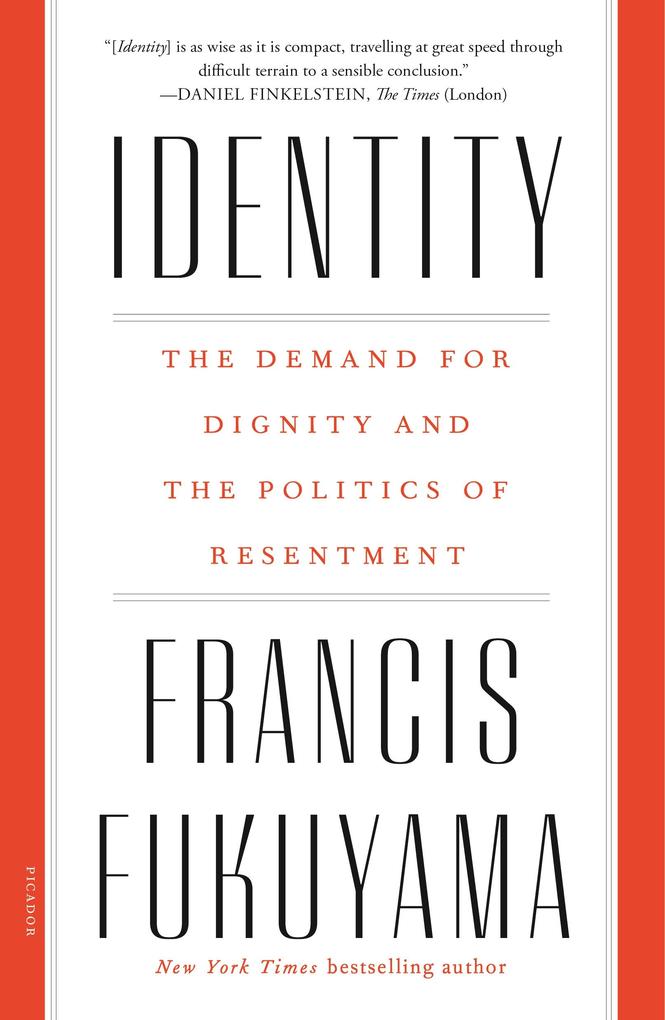
Zustellung: Sa, 18.01. - Do, 23.01.25
Versand in 3 Wochen
VersandkostenfreiBestellen & in Filiale abholen:
From a New York Times bestselling author, short book on how identity politics is unraveling the liberal world order that emerged after the end of the Cold War.
Identity is an urgent and necessary book - a sharp warning that unless we forge a universal understanding of human dignity, we will doom ourselves to continuing conflict. In 2014, Francis Fukuyama wrote that American institutions were in decay, as the state was progressively captured by powerful interest groups. Two years later, his predictions were borne out as a series of political outsiders rose to power. They are populist nationalists who seek direct charismatic connection to "the people," offering an irresistible call to an in-group while excluding large parts of the population as a whole. Demand for recognition of one's identity is a master concept that unifies much of what is going on in world politics today: the rise of anti-immigrant populism, the upsurge of politicized Islam, the fractious "identity liberalism" of college campuses, and the emergence of white nationalism. Populist nationalism, said to be rooted in economic motivation, actually springs from the demand for recognition and therefore cannot simply be satisfied by economic means. The demand cannot be transcended - and as Fukuyama cogently argues, we must begin to shape identity in a way that supports democracy.
Inhaltsverzeichnis
Preface
1. The Politics of Dignity
2. The Third Part of the Soul
3. Inside and Outside
4. From Dignity to Democracy
5. Revolutions of Dignity
6. Expressive Individualism
7. Nationalism and Religion
8. The Wrong Address
9. Invisible Man
10. The Democratization of Dignity
11. From Identity to Identities
12. We the People
13. Stories of Peoplehood
14. What is to be Done?
1. The Politics of Dignity
2. The Third Part of the Soul
3. Inside and Outside
4. From Dignity to Democracy
5. Revolutions of Dignity
6. Expressive Individualism
7. Nationalism and Religion
8. The Wrong Address
9. Invisible Man
10. The Democratization of Dignity
11. From Identity to Identities
12. We the People
13. Stories of Peoplehood
14. What is to be Done?
Produktdetails
Erscheinungsdatum
10. September 2019
Sprache
englisch
Seitenanzahl
XVII
Autor/Autorin
Francis Fukuyama
Verlag/Hersteller
Produktart
kartoniert
Gewicht
228 g
Größe (L/B/H)
135/206/18 mm
Sonstiges
B-Format
ISBN
9781250234643
Entdecken Sie mehr
Bewertungen
0 Bewertungen
Es wurden noch keine Bewertungen abgegeben. Schreiben Sie die erste Bewertung zu "Identity" und helfen Sie damit anderen bei der Kaufentscheidung.









